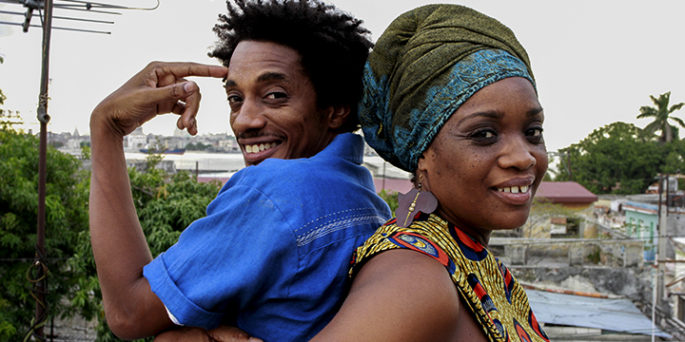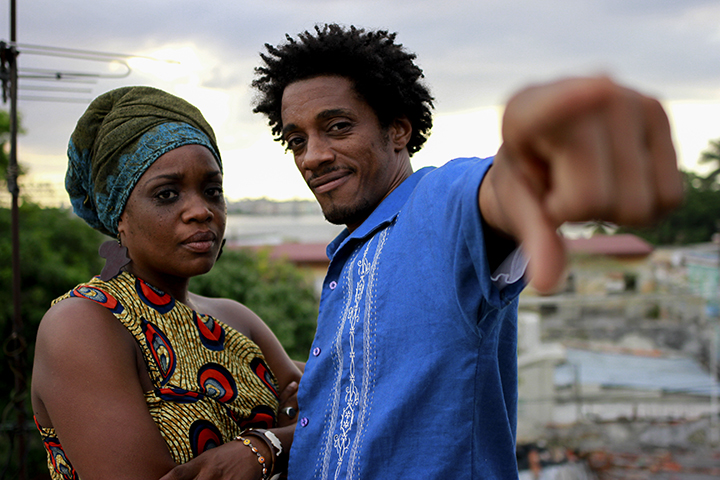
Kimberly Bautista: Seeing Cuba from the other side
HAVANA — Most often, Cuba appears to the world like an exotic tropical site where, from a simplified and misogynous view, women, cigars, rum and palm trees define it.
On other occasions, people compare us with a kind of Caribbean Gallia standing up — in the style of Asterix and Obelix — to the Caesars from the North.
But not everyone sees Cuba the same way. The American filmmaker Kimberly Bautista discovered that we are more than that and decided to reflect it in a documentary.
In “Obsession: Hip Hop from the Other Side,” Bautista explores two characters that are necessary to the rap scene and the vindication of rights for black people on the island. Magia López and Alexey Rodríguez Mola (“This Guy”) tell in 28 minutes 30 seconds part of a story where the protagonist is the art that exposes and attempts to eliminate discrimination through a lot more than rhyme.

Bautista, who lives in Los Angeles, placed her camera in the intimacy of Obsession’s creative process, in search of the truth inspired by their songs, which have had scant exposure in the media.
*****
Regla Municipality, Havana, summer 2015 — Kimberly made her two trips to Cuba to film all the footage she could. “It was fun being here during the months with extreme heat,” she commented via e-mail from Guatemala.
As a foreigner, she learned that, in order to make movies in Cuba, rather than an enviable c.v. and fine production equipment, it’s best to have someone who opens doors for you.
“I began by asking to meet Cuban artists who used their art to promote social issues. Luckily, my friend Catherine Murphy [also an American filmmaker] put me in touch with Obsession and Rochy Ameneiro,” said Bautista, whose “Justice for my Sister” is her best-known work.
The rap duo was her first bet, and Bautista’s arguments make clear the commitment and respect with which she approached her reality. Perhaps for that reason, her lens was not a strange object.
“I am interested in giving leading roles to people of African origin and other ethnic groups who have been excluded by the media, because it’s a way to retake those public spaces and refocus the social imaginary.”
“Marginalized communities must be reflected in audiovisual works, so that the people there can recognize their struggle in human form, allowing other communities to enter that world in an ethic manner,” she explains.
“The documentary looks at the challenges and achievements in carrying out a 20-year-old artistic project. We tell how [the main characters] have centered their social struggles by means of their work, something that I hope will inspire more artists. I can only say that it was a great honor for them to entrust me with their story.”

Havana gave Bautista a lot more than a film short almost 30 minutes long. To her, “it was an enriching experience” that “not only gave me an opportunity to learn the art and culture of Cuban hip hop and meet great artists, such as Alexey and Magia, but also taught me about the Cuban film industry and its way to perform audiovisual work.”
According to other American filmmakers who have worked in Cuba, having the support of Cuban professionals in the production team is one of the best decisions. Bautista did so and praised the work of the chief photographer, Denise Guerra, and the sound technician, Damián Rubiera, both graduates of the International School of Film and Television.
“I learned much from them, and I believe that the quality of my work increased tremendously thanks to their vision and cooperation,” she said.
The streets of Havana, the rides on the mythical Regla launch, the story told and the stories to come confirm to her that this audiovisual was only the first look at the Cuban reality. Others will come. “Rochy Ameneiro, and I’m also working with Afro-American filmmaker Amberly Alene Ellis to carry out more projects with DJ Leidy and Obsession,” she says.
Cuba in New York City screens
“Obsession: Hip Hop from the Other Side” had its U.S. premiere on April 9 at the Village East Cinema in the Bronx, as part of the 17th edition of the Havana Film Festival in New York (HFFNY), which closed on April 15.
Bautista couldn’t attend the premiere because she was in Guatemala, coordinating the collective film “Justice for my Sister,” which promotes gender equality through the development of leadership for the women in Guatemala and in southern California.
Through the comments from colleagues and friends, she created her own impressions.
“I’m super glad to have launched the documentary in that festival, because it hosted other beautiful and valuable projects. Besides, I know that the people who attended the premiere were anxious to see the achievements of Obsession after a 20-year-old career. Many of the people who went [to the premiere] were fans of Magia and Alexey,” she said.
Bautista acknowledges the importance of HFFNY in promoting different images of a Cuba unknown to most U.S. citizens.
“That space in New York has served as a cultural and artistic link for almost two decades, in a context of isolation. It has practically rebelled against the situation,” she said. “Now that apparently there’s a lot more interest in Cuban culture from the U.S. standpoint, those issues can be seen as more relevant. From my perspective, the Cuban and Latin American issues never stopped being relevant, although there was a silence and a lack of information. Now, that gap has been closed.”

